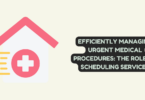
Tips to save money when moving to your place of work
Relocating to a new place of work involves more than just finding the right job or office space—it also entails managing the financial aspects of the move. Whether you’re moving for a new job opportunity, seeking a shorter commute, or simply looking for a change of scenery, saving money during the relocation process is paramount. In this comprehensive guide, we’ll explore a wide range of strategies to help you cut costs and make your move to your workplace as budget-friendly as possible.
Early Planning Leads to Savings
One of the cardinal rules of saving money during a move is to start planning as early as possible. By giving yourself ample time to prepare, you can avoid rushed decisions and take advantage of cost-saving opportunities. Begin by creating a detailed moving budget that includes all potential expenses, from packing supplies to transportation costs and utility deposits. Having a clear understanding of your financial obligations will allow you to make informed decisions and avoid overspending.
Downsize and Declutter
Moving presents an excellent opportunity to declutter your belongings and downsize your possessions. Take inventory of your belongings and identify items that you no longer need or use. Sell or donate these items to lighten your load and reduce moving expenses. Hosting a garage sale, listing items online, or donating to charity are all effective ways to part with unwanted belongings while putting some extra cash in your pocket.
Comparison Shop for Moving Services
When it comes to hiring professional movers, not all services are created equal. Take the time to research and compare quotes from multiple moving companies to find the best deal. Look for reputable movers with competitive rates and favorable reviews from past customers. Keep in mind that the cheapest option isn’t always the best—consider factors such as reliability, insurance coverage, and customer service when making your decision.
Pack Smart, Save Big
Packing materials can quickly eat into your moving budget, but there are plenty of ways to cut costs without sacrificing the safety of your belongings. Instead of buying expensive packing supplies, get creative and use items you already have on hand, such as towels, blankets, and clothing, to cushion fragile items. Seek out free or low-cost packing materials from sources like local grocery stores, liquor stores, or online marketplaces. Remember, the goal is to protect your items during transit without breaking the bank.
Tap into Free Moving Resources
Don’t overlook the wealth of free resources available to help facilitate your move. Websites and apps like Freecycle, Craigslist, and Nextdoor often have listings for free moving boxes, packing materials, and even furniture. Reach out to friends, family, and neighbors to see if they have any spare supplies or equipment you can borrow. Every box, roll of tape, or packing peanut you don’t have to purchase is money saved.
Consider Alternative Transportation Options
Depending on the distance of your move and the amount of stuff you need to transport, traditional moving methods like renting a moving truck or hiring professional movers may not be the most cost-effective option. Instead, consider alternative transportation options such as renting a smaller vehicle, using a portable storage container, or even transporting your belongings yourself. If you’re moving locally or have a relatively small load, packing up your car or renting a van for the day could save you a significant amount of money in rental fees and fuel costs.
Explore Electric Bike Solutions
With the growing popularity of electric bikes in the UK, investing in one can be a savvy move when relocating to your workplace. An e-bike combines the convenience of a traditional bicycle with the assistance of an electric motor, making it an ideal choice for commuting longer distances without breaking a sweat. By opting for an electric bike, you can save money on fuel, parking fees, and vehicle maintenance while reducing your carbon footprint. Plus, cycling is a great way to stay active and healthy while getting to work.
Strategize Your Route
Whether you’re driving a moving truck or cycling to your new workplace, planning your route in advance can help you save both time and money. Use GPS or mapping apps to identify the most efficient route, taking into account factors such as traffic patterns, road conditions, and tolls. Avoid peak travel times whenever possible to minimize fuel consumption and reduce the likelihood of delays. Planning your route ahead of time can also help you avoid getting lost or encountering unexpected detours, saving you time and frustration on moving day.
Negotiate Utilities and Services
Setting up utilities and services at your new residence can be a costly endeavor, but it doesn’t have to break the bank. When shopping for internet, cable, electricity, and other essential services, don’t be afraid to negotiate with providers for better rates or discounts. Many companies offer promotional deals for new customers or incentives for bundling services together. By shopping around and comparing offers, you can ensure that you’re getting the best possible value for your money.
Budget for the Unexpected
No matter how well you plan, unexpected expenses are bound to arise during a move. Whether it’s vehicle maintenance, emergency repairs, or unexpected fees, it’s essential to budget for these unforeseen costs to avoid financial strain. Set aside a contingency fund to cover any unexpected expenses that may arise during your move, and be prepared to adjust your budget as needed. Having a financial cushion will give you peace of mind and ensure that you’re prepared for whatever challenges may come your way.
Conclusion
Saving money when moving to your place of work requires careful planning, resourcefulness, and a willingness to explore alternative solutions. By starting early, downsizing your belongings, comparison shopping for moving services, and considering alternative transportation options like electric hybrid bikes, you can significantly reduce moving costs while ensuring a smooth transition. Remember to budget wisely, tap into free resources whenever possible, and be prepared for unexpected expenses along the way. With a bit of foresight and creativity, you can make your move to your workplace both cost-effective and stress-free.






